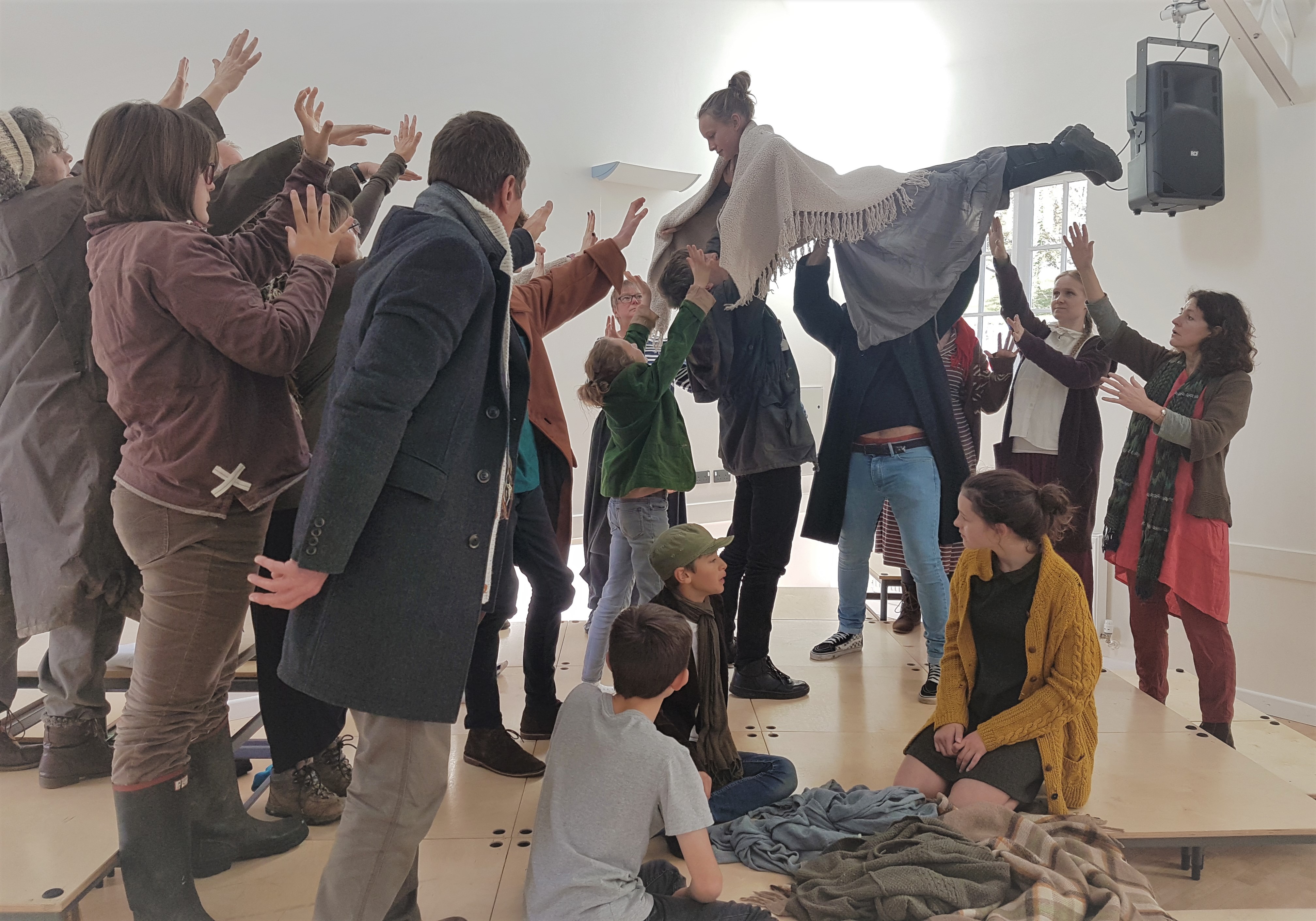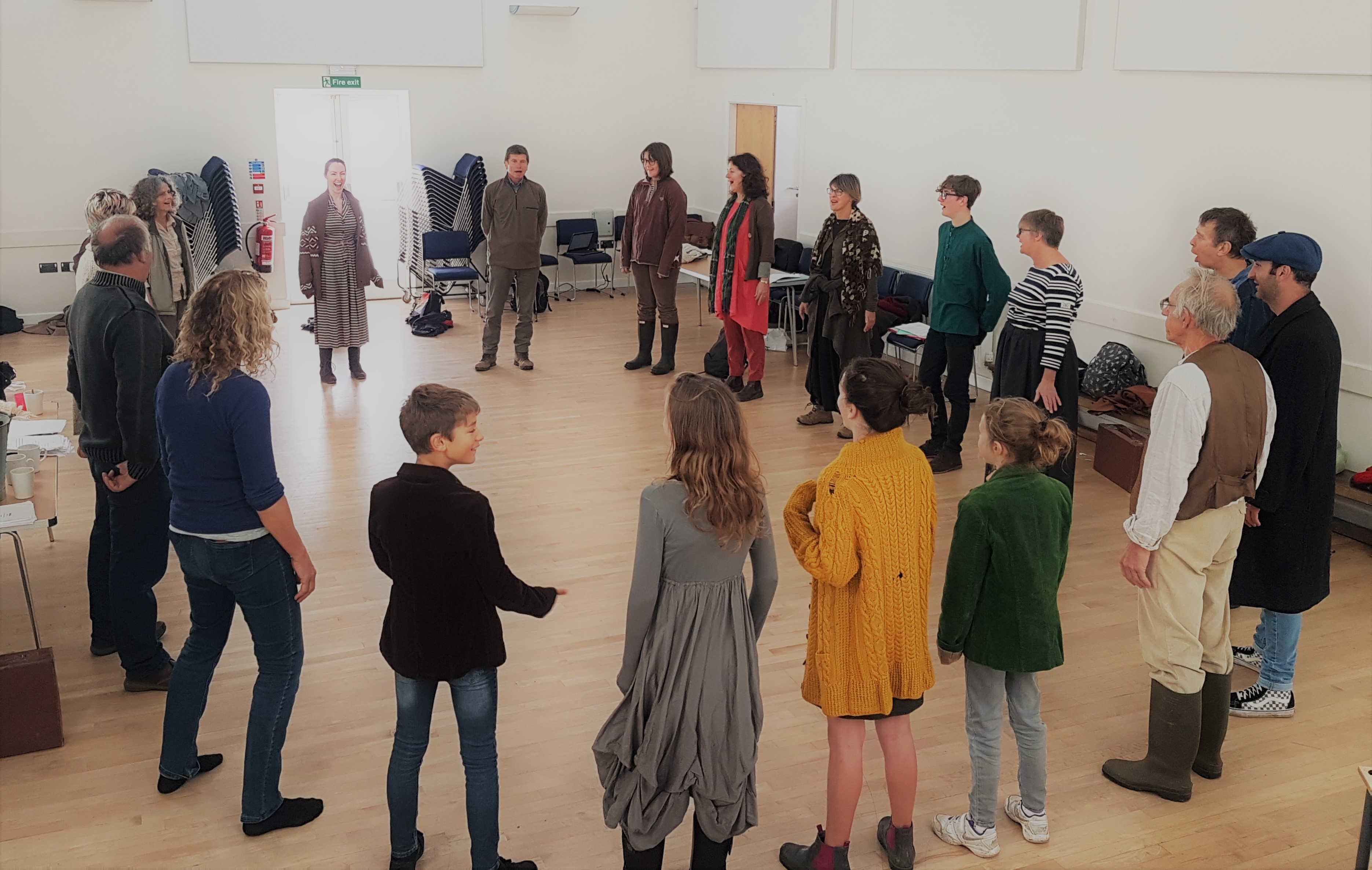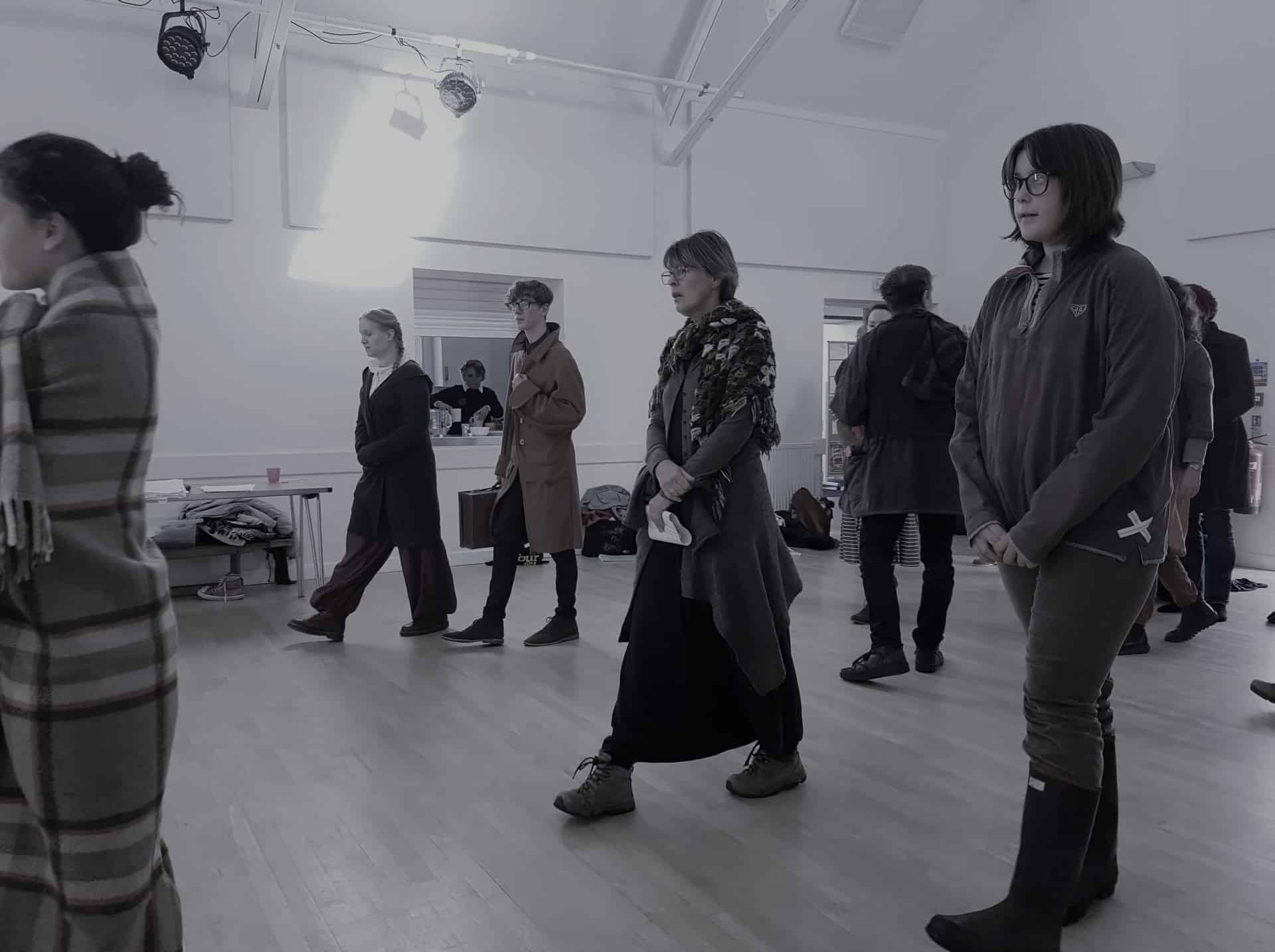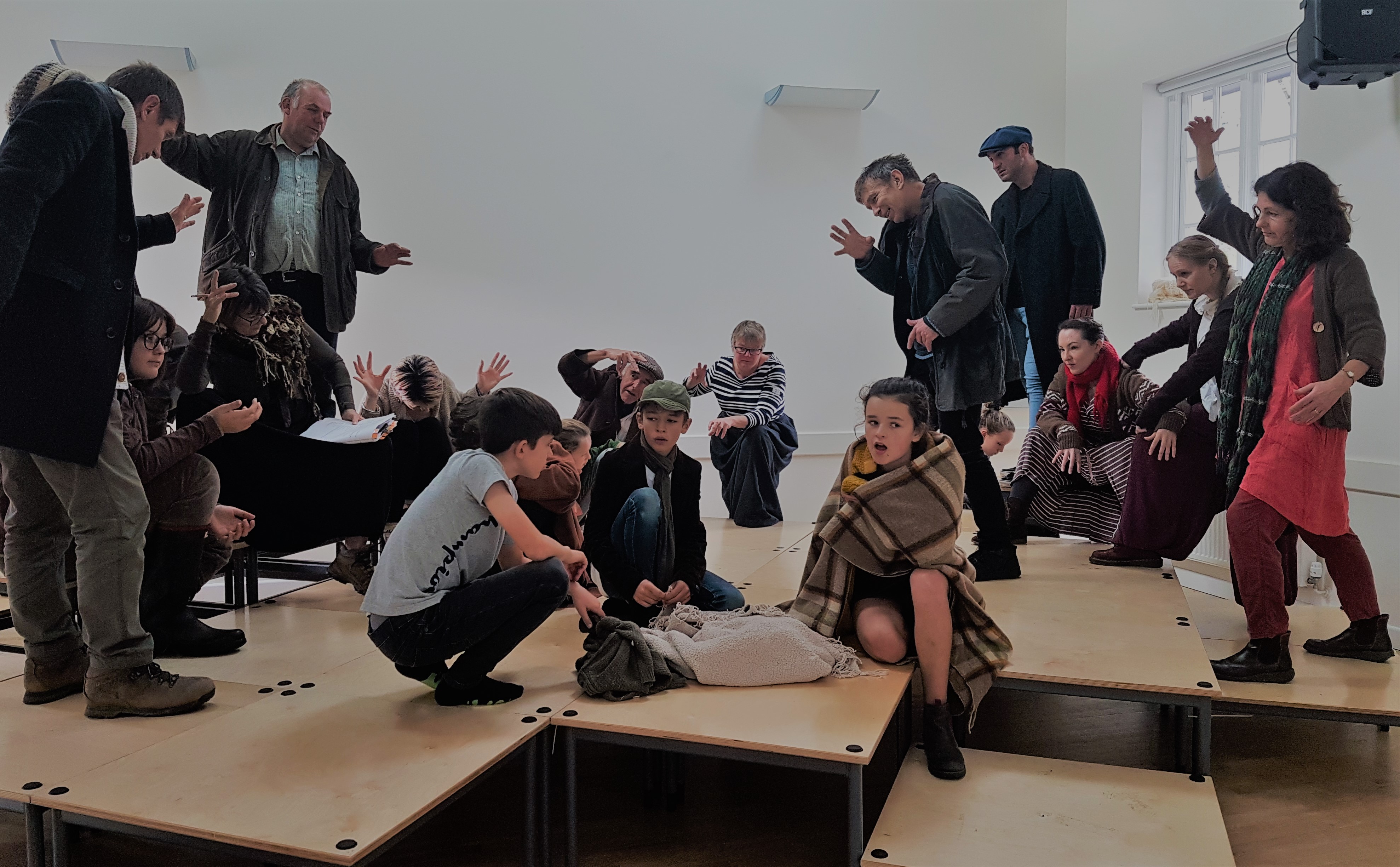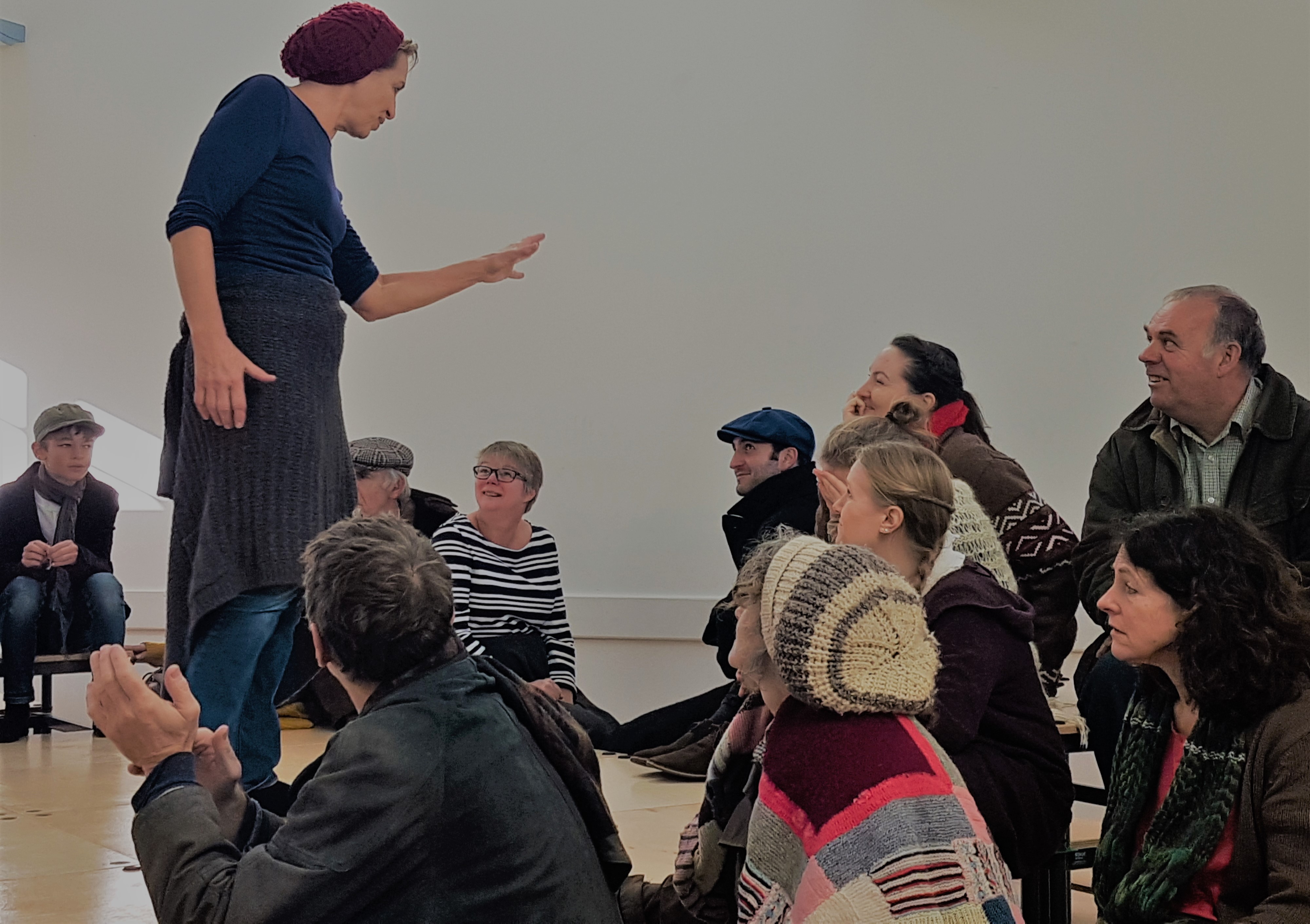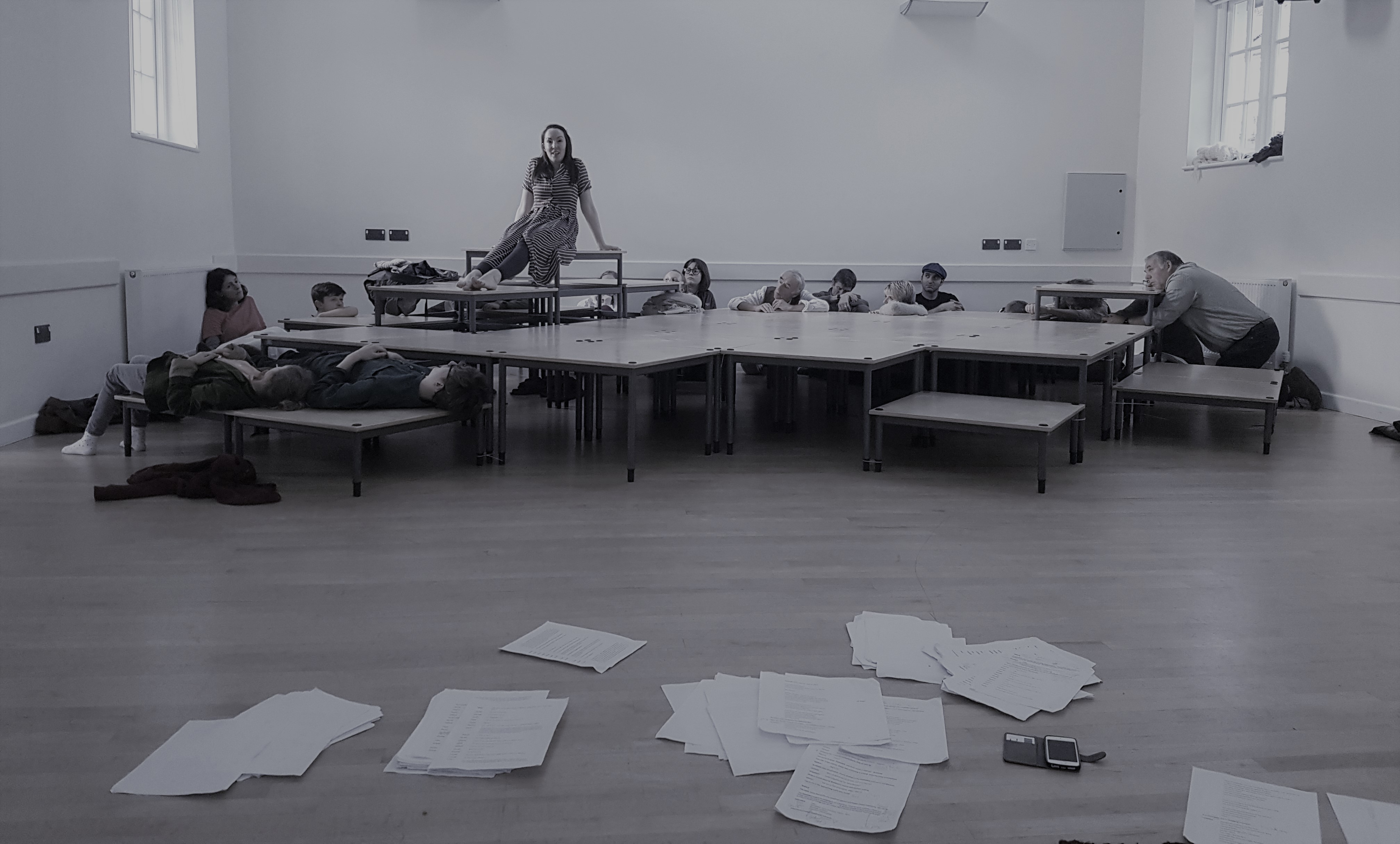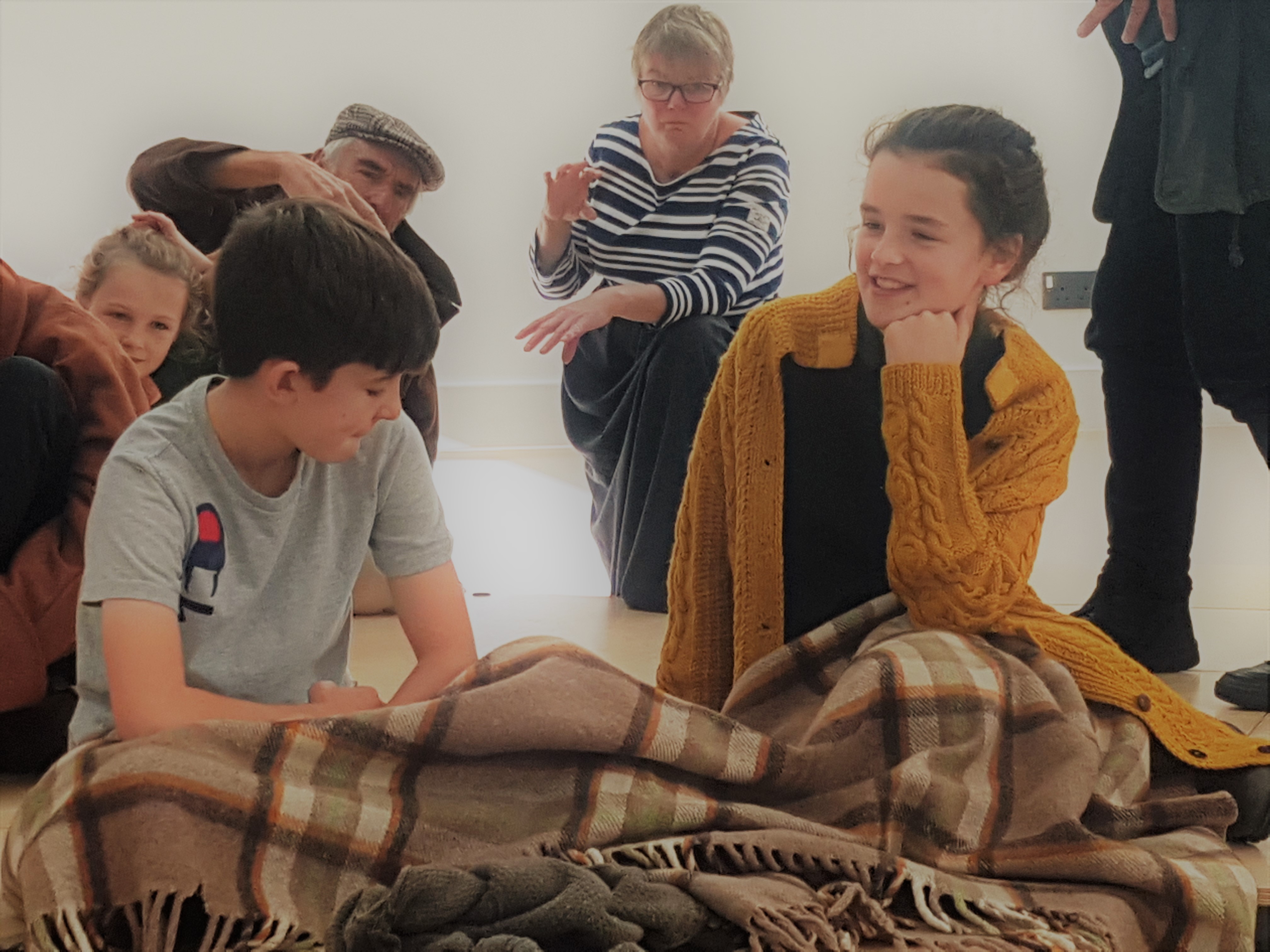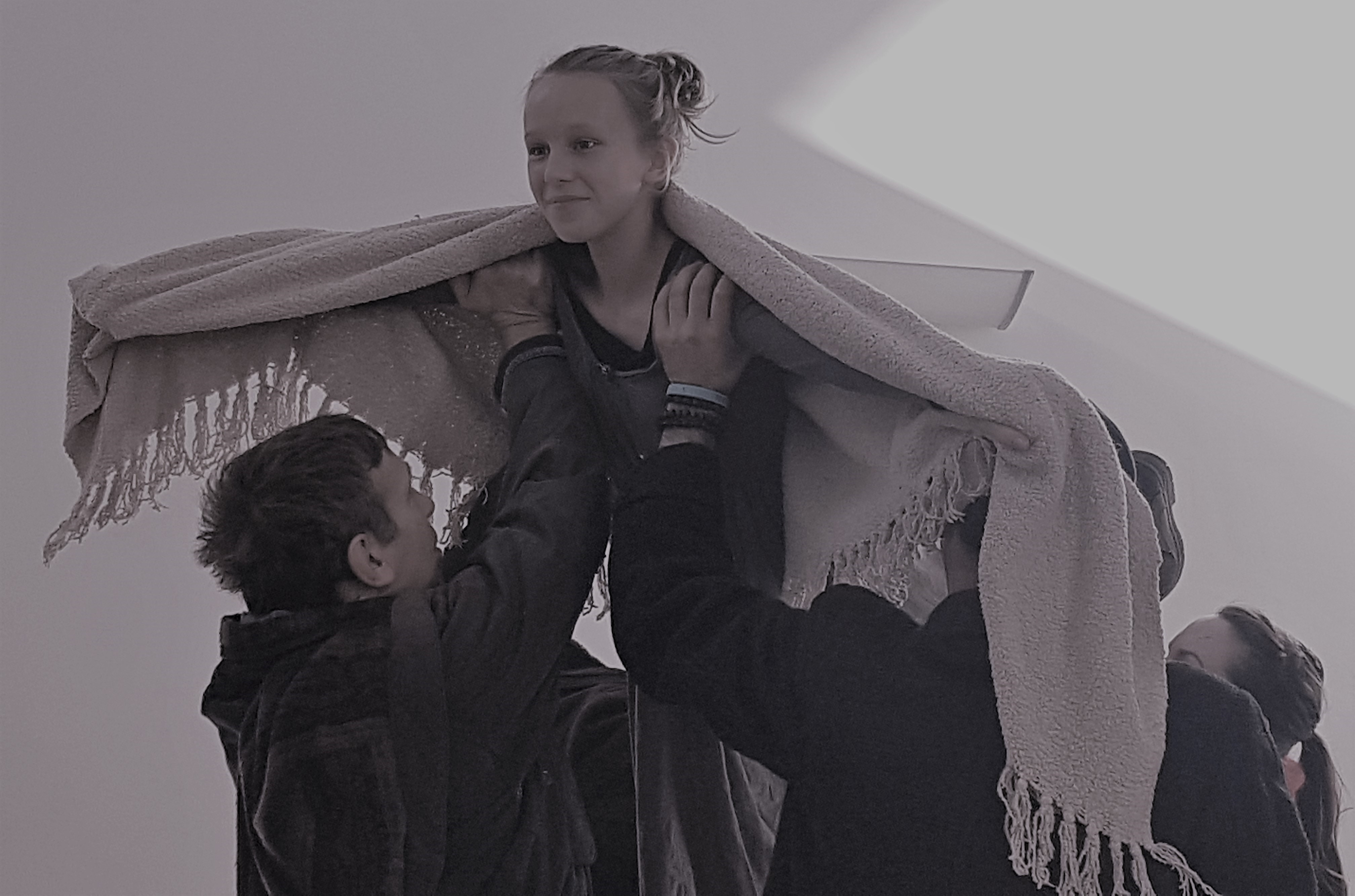There’s just three weeks to go until Swimbridge Jubilee Hall is converted by the Hefted company into a magical storytelling arena. Bringing forth myths of clay, water, fire and wind through song, movement and performance – and spanning 600 years of life in North Devon – they’re preparing to take audiences on a transformative journey.
It’s the middle of November and I’m at the first full-day rehearsal with the whole company since they met six or seven weeks ago. In the meantime, they’ve been meeting in smaller groups three evenings a week, rehearsing scenes specific to their characters and gradually delving deeper and deeper into the script.
Now, the whole ensemble of professional performers and community performers led by Multi Story can finally come together and see how their work combines.
They call it a ‘stagger-through’ – an opportunity to go step-by-step through the whole play now that each individual element has begun to take shape, and to see what new questions and discoveries might present themselves.
I watch as the ensemble gather for a vocal and physical warm-up led by professional performer Laura James, then sit back mesmerised as they fill the Jubilee Hall with singing. People move differently in the space now they’ve got their costumes on. You can see them taking ownership of the stage – it’s their space, their arena.
In full costume still, they process through the imagined audience to the multi-tiered stage with complete focus, bringing with them a harmonious rendition of a folk song that supports the ideas of ritual, community and roots that they’ve found in the script.
As the rehearsal marches forward I watch them practice dance lifts, choreographed movement, intensely-performed scenes and moments of solo storytelling told and shown through full-stage pictures, added to layer-by-layer through the direction of Gill Nathanson and Bill Buffery like painters constructing a masterpiece: as vivid also as the Ravilious and Deakins photography from the Beaford Archive that has inspired them.
The company talks frequently in terms of dance and movement – this is not a world of ‘blocking’ action in clunky pre-set positions but creating a stage world of fluid visions like water, drifting and morphing from one shape to another.
In fact, there’s a whole range of theatrical techniques at play. I forget that this is a ‘mixed’ company. They are just a theatre company now, supporting one another as professionals.
They will occupy the stage space for the entire performance – there are no entrances or exits here. Everybody has to remain in character, for the duration, and the more I watch the more I understand how the individual preparations are now feeding the whole.
Chatting with the company in the lunch break, I realise this is as true of the performers’ experiences as it is of the production. Some people here are performing for the very first time, but the detailed ensemble work of the past seven weeks has created a feeling of safety and support on stage – protected by common endeavour, commitment, and probably a few shared nerves too. But they’re never isolated on stage – they’re together.
The conversations and conflicts of the play seep out too – are we stayers or leavers from our native homes? Do we feel like we belong to our birthplace or not, and why? How would we approach surviving an ecological collapse? Would we survive mentally, socially and pragmatically, cut off from a flooded mainland? What would we strive to remember and why?
The ideas raised by the play, even across this short rehearsal period, are also being echoed loud and strong in the political mainstream. The production might be local – we hear the staff in the Tesco Extra in Barnstaple are talking about it – but the stories within it point to an urgent global deadline that affects everybody.
I chat with the younger performers too. They’re relishing the new challenges the roles are providing them – speaking old North Devon dialect, working with adult performers on an equal footing, acting alongside their friends, and connecting with their characters who are ‘just like me – wild, loving the outdoors and not listening to my parents!’.
As I drive back to Bristol though, one conversation stays with me. A story of a real couple within the ensemble, who had been thinking about moving from the local area.
There are myriad reasons why they’ve chosen to stay after all, but a distinct one is passed on to me that perfectly echoes the gesture of the production’s desire to connect.
‘It’s this play.’
Hefted is directed by Multi Story and presented by Beaford Arts in association with community producer Julie Whitton.
Friday 7th and Saturday 8th December at 7.30pm at Swimbridge Jubilee Hall.
